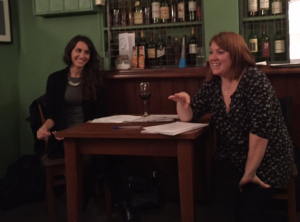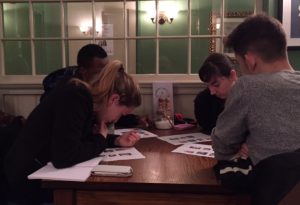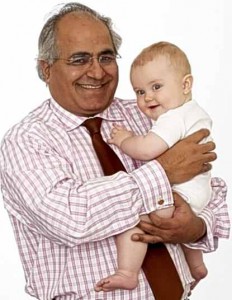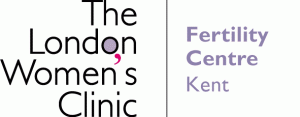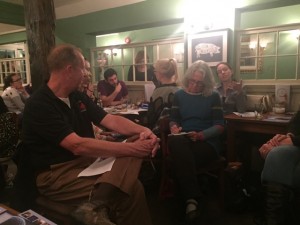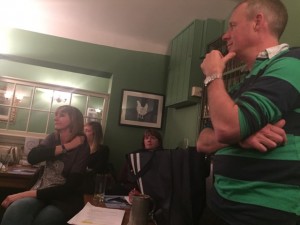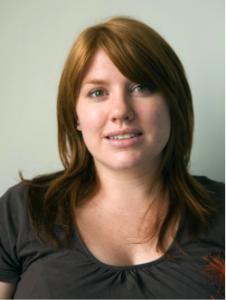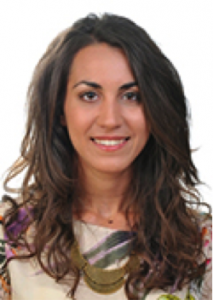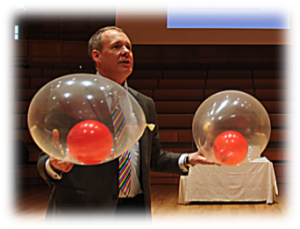Category Archives: Uncategorized
CISoR Cafe Scientifique Second Session a Success
The second in the CISoR Cafe Scientifique series built on the success on the first, proving that good things can only get better. Hosted by the Olde Beverlie pub, Kent Law School (KLS) Senior Lecturer Kirsty Horsey and KLS PhD law student Katia Neofytou shared the presentation and animated a discussion on the topic of ‘Surrogacy, Egg Sharing and Reproduction in the 21st Century’. Kirsty and Katia’s talk involved audience members to determine parentage for some fourteen different surrogate, donor and intended parent ova and sperm combinations. Pamela White, KLS, moderated a lively discussion among about 20 delegates. The pub management once again came up trumps with a nice buffet and we look forward to Antony Blackburn-Starza challenging us to consider the question: “Should employers pay for egg freezing?” in December.
Harley Street treatment comes to Canterbury
To Russia with love
Developing Kent–Russian connections in April 2015 CISoR’s Dr Michael Romanov and our collaborator Dr Denis Larkin, of the Royal Veterinary College, London visited the All-Russian Research Institute for Farm Animal Genetics and Breeding in Pushkin and St Petersburg State University. They were invited seminar speakers and delivered talks about livestock and avian genetics and genomics. Highlights of the seminar were genomic selection in cattle, genome-wide diversity in sheep, and evolutionary genomics in birds. Their Russian counterparts reported studies on high throughput genome-wide genotyping of a dairy breeding stock and examination of variation in candidate genes for poultry productive and reproductive traits. The parties set up plans for continuing partnership and collaborative research.
Denis (left) and Mike (right) in the Institute’s Hall of Fame:
The Spectre of a return trip
In October 2015, Mike and Denis were re-invited for an extension seminar course followed by an international scientific meeting at the All-Russian Research Institute for Farm Animal Genetics and Breeding in Pushkin. These events coincided with the Institute’s 75th anniversary celebration. The lectures and hands-on sessions were focused on theoretical and practical aspects of contemporary genetics and genomics in livestock and birds. Their topics involved farm animal and avian genomes, genetic variation and markers, economically important genes, novel sequencing and SNP technologies, genome assembling and annotation tools. Reports at the international conference dealt with improvement of livestock (cattle, swine) and poultry species and breeds, their performance and fecundity, using genetic, genomic and transgenesis techniques. The Russian colleagues showed an interest in collaboration with the UK researchers regarding genomic applications in chicken selection.

Reproduction “motifs” in the Animal Genetics Institute interior design
CISoR Cafe Scientifique Kicks off in style
The CISoR Cafe Scientifique series kicked off in fine style in October this year. Hosted by the Olde Beverlie pub, CISoR Director and Deputy Director took the lead in a presentation and discussion based around the topic of “Designer Babies” One step further on the slippery slope.” Darren’s talk was peppered with visual props including his balloon inside a balloon” (supposed to represent a cell apparently) and Sally moderated a lively discussion among about 50 delegates. The pub management came up trumps with a nice buffet and we look forward to Kirsty Horsey enlightening us with the next one on surrogacy and egg sharing.
“Born this way” – sexuality and gender. 24th Nov 2015
“Born this way” in contemporary science: Multidisciplinary approaches to sexuality and gender
Tuesday 24th November, 13:00-18:30, Darwin Conference Suite
This is a University-wide event open to the public, brought to you by The Biological Anthropology Research Group, School of Anthropology & Conservation and CISoR: The Centre for Interdisciplinary Studies of Reproduction.
Sexuality is an important topic in society and life. It is also one that has traditionally been seen through a very heteronormative lens. Lots of research addresses the origin of two distinct sexes in tome-like fashion. Research on behaviour tends to focus on opposite-sex mating, marriage and motivations, but ignores the broader spectrum of sexualities that actually depict human populations.
Now we know that sexual orientation is not a choice and that it is highly variable, but that society also shapes the underlying orientation in myriad ways. A topic this complex needs perspective from multiple levels and disciplines. Recent work in numerous fields will be used as a platform to discuss up-to-date research on many levels, from the biological (where does sex come from?), to the social (how does society shape sexual behaviour, orientation and acceptance given the underlying biological motivations and orientations?). We want to discuss where research is now, where it is headed, and how it can be applied to issues of health and equality.
The event consists of six talks by experts in multiple disciplines, presenting research from multiple perspectives, and concludes with a panel discussion. There are opportunities for audience participation at the end of each talk, as well as during the final discussion. The goal is an open yet critical atmosphere to discuss these exciting topics.
There are a lot of pressing needs for wider dissemination of research on this topic. We hope you will come and take part in the discussion.
The speakers are:
- Peter Goodfellow, University of Kent
- Gerulf Rieger, University of Essex, psychology
- Diana Fleischman, University of Portsmouth, psychology
- Jamie Lawson, Durham University, biological anthropology
- Steve Lyon, Durham University, social anthropology
- Marian Duggan University of Kent, criminology
For any questions, please contact Oskar Burger.
CAFÉ SCIENTIFIQUE: Reproductive labours: Surrogacy, egg sharing and reproduction in the 21st century?
6pm-8pm
Tuesday 10th November
YE OLDE BEVERLIE
St Stephen’s Green, Canterbury, Kent CT2 7JU
Dr Kirsty Horsey, Katia Neofytou, School of Law, University of Kent
Centre for Interdisciplinary Studies of Reproduction (CISoR)
The session will be moderated by:
Dr. Pamela White
School of Law, University of Kent
Centre for Interdisciplinary Studies of Reproduction (CISoR)
A light buffet will be provided
Thanks to the University of Kent Public Engagement with Research Fund
Cafe Scientifique Event – 13th October 2015
CAFÉ SCIENTIFIQUE
Designer babies: One step further on the slippery slope?
6pm-8pm
Tuesday 13th October
YE OLDE BEVERLIE
St Stephen’s Green, Canterbury, Kent CT2 7JU
Professor Darren K Griffin
Professor of Genetics, School of Biosciences, University of Kent, Director of the Centre for Interdisciplinary Studies of Reproduction (CISoR)
Darren was one of the originators of Preimplantation Genetic Diagnosis (PGD) and continues to work on it to this day. In this talk he will discuss some of the history behind the term “designer babies” and how the most recent technology may mean that the stuff of science fiction may be closer than you think. What do you think about it? Come and have your say!
The session will be moderated by: Professor Sally Sheldon, Professor of Law, School of Law, University of Kent, Deputy Director of the Centre for Interdisciplinary Studies of Reproduction (CISoR)
A light buffet will be provided
Thanks to the University of Kent Public Engagement with Research Fund
On 5th September members of CISoR took over Woolf College for an extravaganza entitled “SEX AND DRUGS AND IVF.” A Café Scientifque session started with Martin Warren, Professor of Biochemistry, and a talk entitled “Inheritance of the royal malady” where he gave an account of a study of porphyria and haemophilia in the royal family. Martin revealed some of the science behind what was wrong with King George III and how recent studies are looking at his DNA. Dr Sarah Johns gave us “An Evolutionary Sex Education Lesson” while Sarah Norcross, Director of Progress Educational Trust told us emphatically why it is NOT three parent IVF. Darren Griffin, Professor of Genetics, covered some of the history and anecdotes of the 25 years of PGD from the humblest of beginnings to what has now become a multi-million dollar industry and the talks concluded with Robbie Sutton, Professor of Social Psychology telling us about sexist beliefs in female superiority and their surprising consequences. Aside from the talks, works by the key members of CISoR were on display as posters including Nick Newton-Fisher’s “Promiscuous females travel for sex” and Robin Mackenzie’s “Sex with robots.”
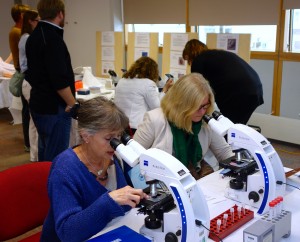
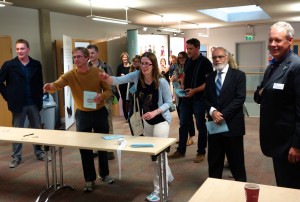
Visitors took a stroll around and visited our various booths and stalls where several of our friends from industry were visiting such as Brand (with their “pipetting challenge”), Cytocell (with their “FISHing” game), Digital Scientific, Research Instruments and “JSR Genetics” from the pig breeding industry. Many had a go at our famous “sperm toss” game and met, in person, some of the birds that we study (including falcons and parrots).

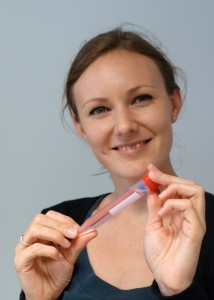
The seminar rooms were also full of a wide range of activities. These included “Lab Rejects” (Dr Dan Lloyd). This mini exhibition celebrated a series of these that had recently become obsolete by mining their recent history, exploring their use, and understanding the technological advances that have rendered them Lab Rejects. Gina Glover’s Art in A.R.T artwork was on display including playful explorations of the biomedical sciences. Andy Birtwistle’s “Laboratory Film” was shown that captures the laboratory environment in vivid, revealing and
unexpected ways, following a scientist as she sets up her own PCR-based experiment. The meeting marked the unveiling of YouNome by Keith Robinson a unique science- art collaboration designed to engage, educate and inspire the general public about ‘personalized genomics’. Keith produced 25 self-portraits, each representing the 24 human chromosomes (plus mitochondrial DNA) by altering his self-image. Keith aims to facilitate genetic understanding and reference art history, popular culture and effects on the viewer. The Vice Chancellor Julia Goodfellow and her husband Peter Goodfellow (a leading geneticist) got the YouNome treatment with their own personalised versions.
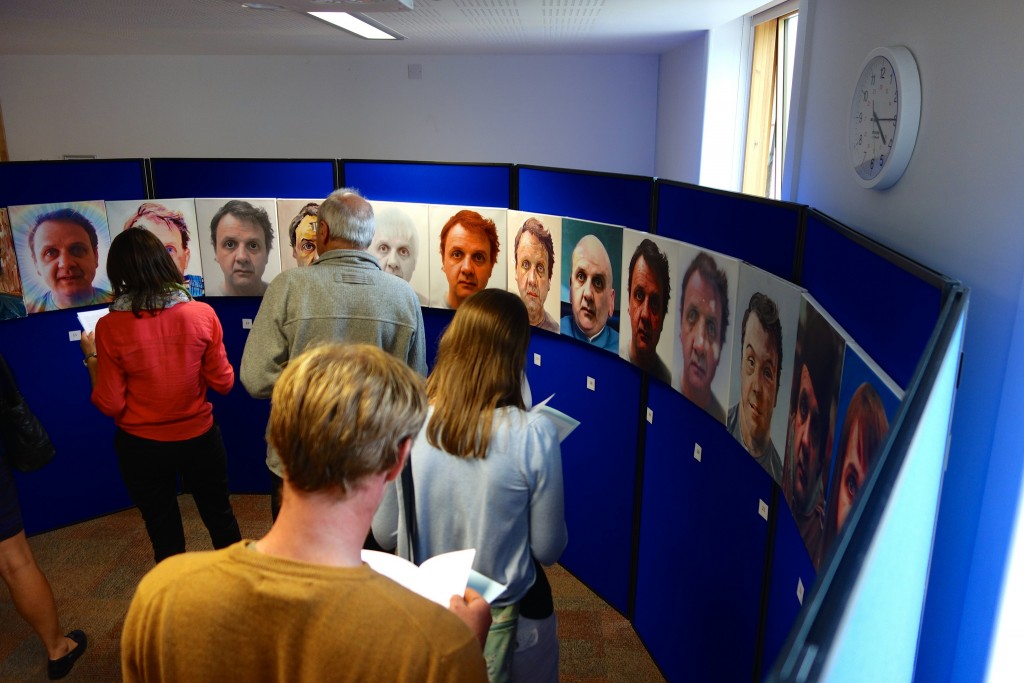
Members of the Griffin lab also demonstrated their trade showing visitors what goes on inside an IVF lab. With the help of the London Women’s Clinic they created an “IVF experience” to give the public a little bit of an insight into how to visualize and move embryos. In the “DNA lab” the public learned about themselves at the most fundamental level – the cell, They had fun with doing some hands-on biology and tried their hand at isolating DNA, the substance that makes every one of us who we are.
The unexpectedly low numbers did not dampen the spirits of those that attended and pictures from the day can be found here.
